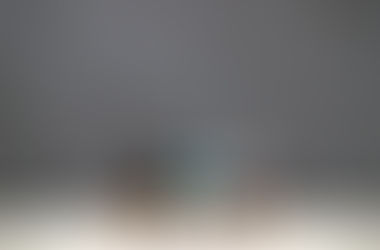Representation Mentors Young Creatives
- Michelle Rene
- Nov 28, 2016
- 4 min read

Hello and welcome back to my Creative Advocacy Blog.
I'll start this by telling a story from my childhood. When I was young, adults asked me the same question they asked every child. "What do you want to be when you grow up?" Most didn't care about the carefully constructed answer I prepared. They just wanted to pat my head and smile at my lovely, innocent remarks.
One day, my father's mother asked me what I wanted to be, and I gave her the same answer I'd given everyone. "I want to be a writer and an artist when I grow up." The thing was she didn't pat my head, and she didn't smile. My grandmother looked down at me and scowled.
"You're just gonna starve," she said. "Better think of something else."
"But people like Picasso and Hemingway. They didn't starve," I tried to argue.
"Yeah, and they're men. Look at your school books. Do you see any women? No. That's because women can't be famous artists."
For years I told this story, using it as a tale of backwards thinking in rural West Texas. It wasn't until I got older that I realized she was absolutely right. If you went through my school books, you didn't see women in the pages. You didn't see many people of color either. Sure, there were a handful here and there, but not much. The same went for video games, film, and television. Where was my representation?
My grandmother didn't have more than an elementary school education, but what she said was spot on as far as she knew. What right had I to think I could do more where so few women had made it? Why dare to try if it was such a long shot?
Well, the answer is I'm stubborn as hell, and my mother said I could. I didn't care if it was a long shot; I was going to try. While I'm far from famous, I'm out there in the world, proving my grandmother wrong. But what about all those little girls who were told they couldn't? What about the children of different races, creeds, religions who never saw a version of themselves in the role they wanted? The ones who weren't a bull-headed girl that took every rejection as a challenge.
It's hard to aspire to something that the world says is not for you. And when you try for it anyway, it doesn't always want you there. I've worked in male dominated fields, and every time it was a struggle to find footing. If you aren't in the boy's club, it's tough to find your place. Once you do, the slightest misstep can knock you back out in a hurry.
The saddest part is that most don't even bother trying to get in, to break that barrier, because they can't see themselves there at all. What's the point? It's not for them.
This is why representation is so important. It is why bull headed people like myself have to keep trying, keep putting themselves out there for young kids to see. We need to uncover the parts the history books left out because they did leave it out. There was representation. It got buried.
Most could say women and people of color didn't do important things because they were repressed. They didn't have the opportunity. That is true to an extent, but it doesn't explain the amazing people who did. Jane Austen, Frida Kahlo, Emily Dickinson, Berthe Morisot, Mary Cassatt, Elizabeth Le Brun, Harriet Tubman, Nina Simone, Mary Wollstonecraft, Harriet Beecher Stowe, and Margaret Hamilton to name a few. I didn't know much about a lot of these ladies until I hit college.
Mentors are needed. Mentors are wanted. Often times, the only mentors a child gets are the ones they see on TV, and if you can't see yourself in the faces on the screen, who is there to encourage you to try? I had my mother, but what if I didn't? What if I wasn't stubborn? What if I believed all the people who told me no? What if......?
I am cheered to see media beginning to change this. I love to see people digging for the history we don't see. The history we should see. Take the movie coming out soon, Hidden Figures. This is the true story about African American women who served as the brains behind the mission to launch John Glenn into orbit. I consider myself a bit of a history buff and an admirer of space travel. Until I saw this trailer, I had never heard of these women. Never. No one I knew had either. How did this happen? Think of the struggle these women had to go through to work for NASA back then. How is this not taught in school?
Think of how many kids out there might have pursued their love of math and science had they had someone like those women to look up to. How many little girls might have tried to be artists if they saw who Frida Kahlo was? How many might try their hand at writing science fiction after reading Mary Shelley?
Our children need to see they can do anything no matter what they look like. They need representation. They need mentors. Barring all that, they need to hear these words from my mentor...
"I used to think I was the strangest person in the world but then I thought there are so many people in the world, there must be someone just like me who feels bizarre and flawed in the same ways I do. I would imagine her, and imagine that she must be out there thinking of me too. Well, I hope that if you are out there and read this and know that, yes, it's true I'm here, and I'm just as strange as you." -Frida Kahlo

























Comments